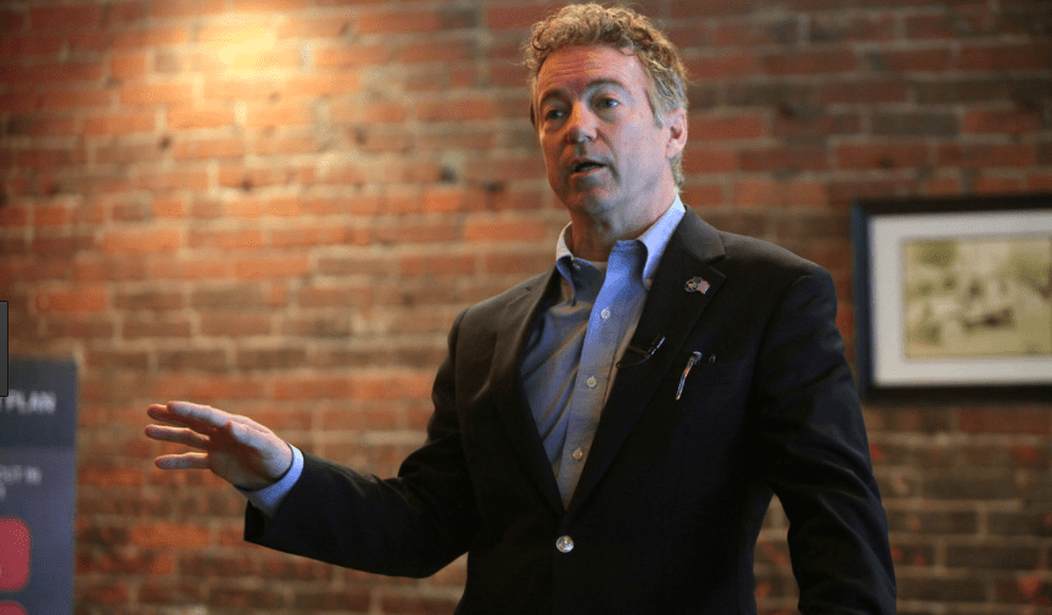WASHINGTON — A House Dem charged that Sens. Ted Cruz (R-Texas) and Marco Rubio (R-Fla.) wouldn’t be senators if the legislation proposed by their colleagues and championed Wednesday by President Trump had been in effect before they were born.
Trump unveiled the Reforming American Immigration for a Strong Economy (RAISE) Act — a bill to favor green card applicants who can speak English, financially support their families, and have a high degree of education or job skills — with sponsors Sens. Tom Cotton (R-Ark.) and David Perdue (R-Ga.) at the White House. Proponents say the reforms will translate into pay raises for American workers.
Rep. Luis Gutierrez (D-Ill.) told MSNBC this morning that his parents immigrated from Puerto Rico in the 1950s. “Mom had a 5th grade education, my dad an 8th grade education. They didn’t speak a lick of English, yet they worked really hard. They worked really hard, they sweated and they toiled, and their son got to become a member of the Congress of the United States,” he said.
“I look at the bill and I think to myself, well, Sen. Rubio wouldn’t be a senator and Sen. Cruz wouldn’t be a senator because their dads and moms wouldn’t have been allowed into this country if you would’ve used these standards,” he added of the sons of Cuban immigrants.
Gutierrez said that “on the basis of tradition… our great tradition of accepting people and making America the great country that it is, I have to oppose this bill.”
He stressed that with 2 million immigrants working in agriculture the low-skilled labor is needed, adding that no member of Congress “is sending their kid to school to work at pretty hard, back-breaking work in the fields of America.”
“I wish Senator Cotton and Senator Purdue would listen to their farmers. And here’s what they’re going to tell them. They’re going to tell them we need those workers and they’re vital,” the congressman said. “And I know we talk a lot about, you know, energy independence. What about food independence?”
Cotton told MSNBC his bill “would reorient our immigration system so that we are not competing, not putting downward pressure and forcing working class Americans to compete with unskilled and low-skilled immigrants, while at the same time attracting the best and most talented immigrants from around the world who are going to come here and apply their entrepreneurial skills or innovative spirit to create new jobs for all Americans, whether their families came over on the Mayflower or whether they just took the oath of citizenship last week.”
He emphasized that his bill doesn’t target low-skilled guest workers.
“There’s not a single industry in this country, not a single industry in which native born Americans do not hold a majority of all jobs,” Cotton said. “Americans will do any job if you pay them a decent wage. But for 40 years, for 40 years, Americans with a high school degree or less have seen their wages fall and that’s not coincidental that over those 40, the number of immigrants in this country have quadrupled.”
“…There is no doubt that we could bring in 175 million Bangladeshis from Bangladesh and increase the size our economy. But would that really be good for us? Would it be good for them? I would say it’s not.”
Sen. Lindsey Graham (R-S.C.) argued that “employers can advertise until the cows come home” but “there’s certain areas like meat packing and tourism and agriculture that you just can’t find American-born labor to do those jobs and these legal visas keep the company from going out of business or moving overseas.”
“And I don’t want a economy that doesn’t recognize how diverse we are as a nation,” he added. “And to take all the green cards and put them in one end of the economy is just, I think, ill-advised and I can’t support that.”








Join the conversation as a VIP Member